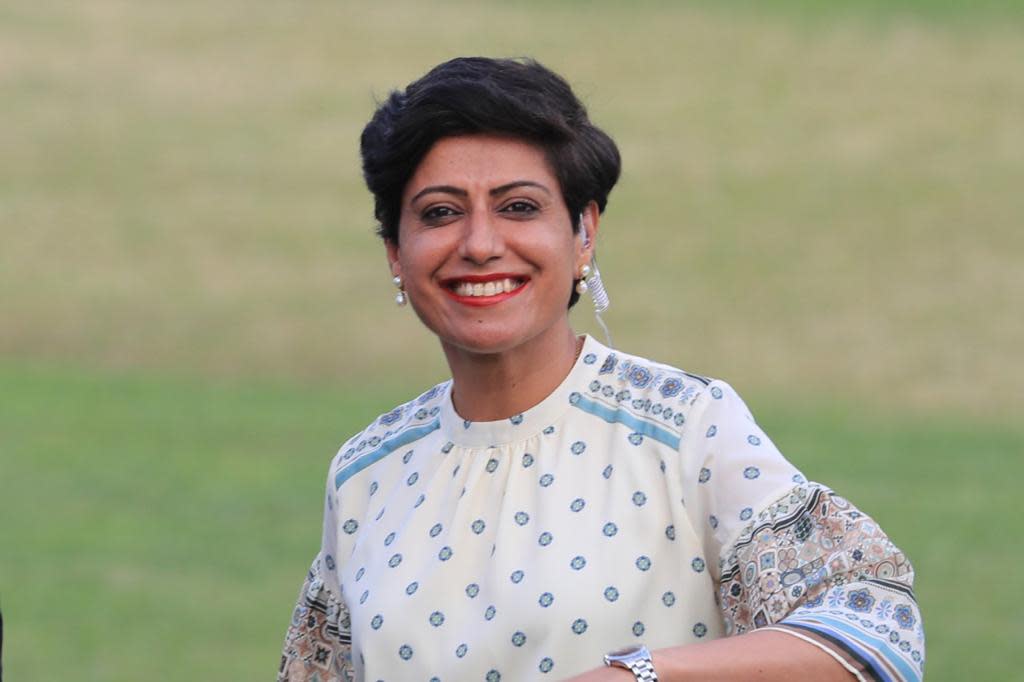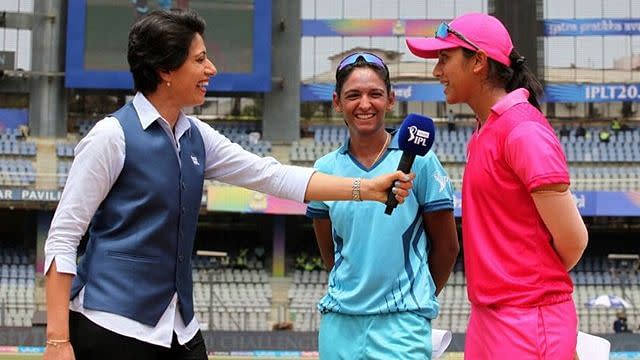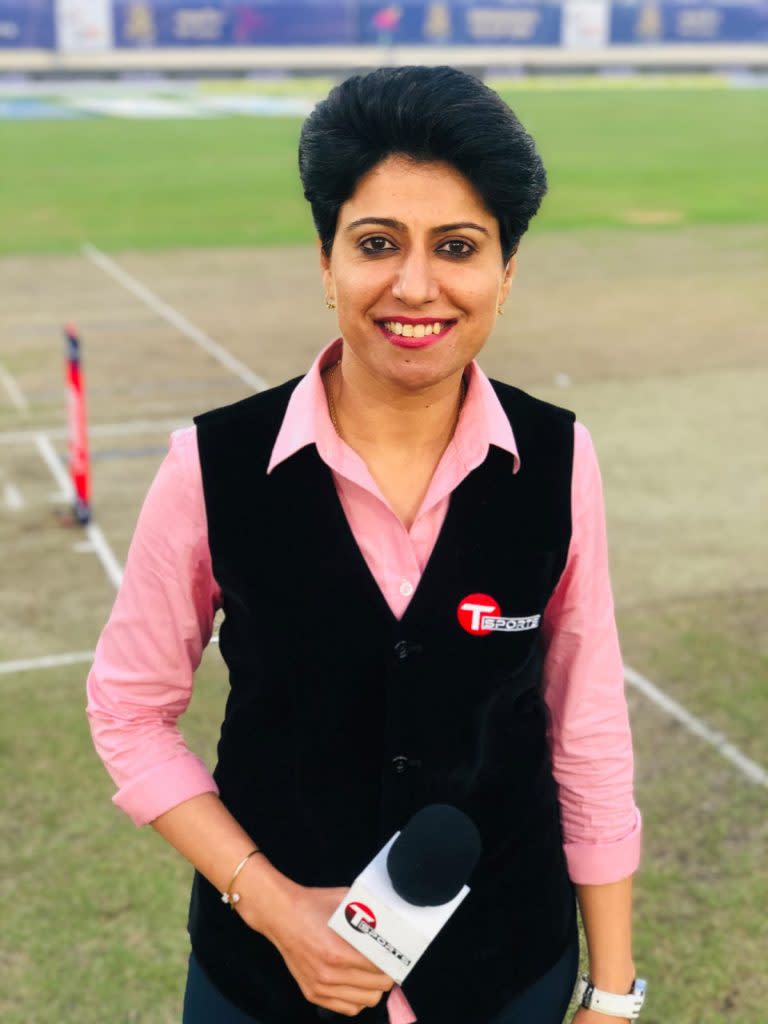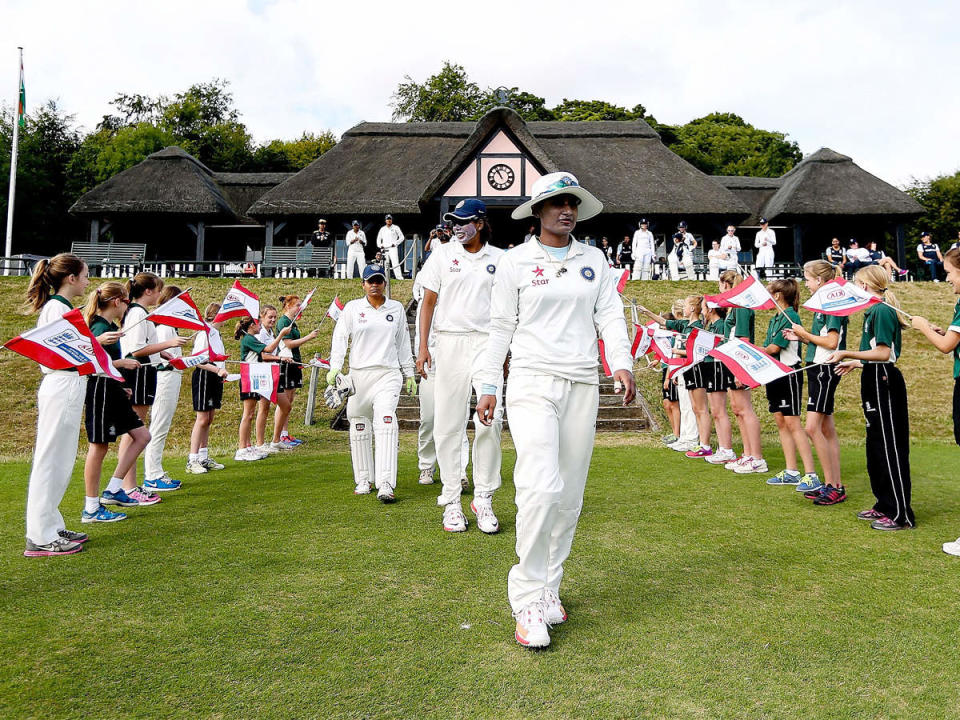#BreezyExclusive- Sports teaches you lessons that you don’t get in books: Anjum Chopra

When it comes to Indian women’s cricket, it is at a whole new level now. It indeed possesses cricketers at the top level, while since finishing as the runner-up during the 2017 ICC Women’s World Cup, it has garnered enough attention from the Indian fans, bringing them at par with the men’s team. However, have you ever wondered what or who brought in the revolution in women’s cricket in India? While many legends played their part, considering the modern-day sport, it has to be Anjum Chopra. The batter turned commentator is regarded as the ‘Face of women’s cricket in India’.
Meanwhile, as women’s cricket continues its upward spiral in the nation, we have questions in our mind as to what is aiding it and how sport as a whole is getting new recognition. On the same note, BreezyScroll caught up with Anjum as she spoke on plenty of topics.
It is widely accepted that you are the face of women’s cricket in India, paving the way for modern-day women’s cricket in the country. What made you take up the sport, especially when men in the country mostly dominated it? Tell us about your life journey.

I simply took up the sport because I wanted to play it. I had played other sports as well. During my school days, I used to go for cricket training daily afternoon after my school days. I was very young when I started playing the sport.
The Indian men’s team inspired me, especially legendary players like Sunil Gavaskar, Kapil Dev, and many more, along with some English players I knew, as I had heard so much about them while I was on my dining table. Furthermore, I belong to a sports family, while my family always supported and guided me. I had a choice between cricket and basketball at a point, and I decided to go ahead with the former.
Were you confident that you would thrive in the sport?
Nobody starts off knowing how much success they would have in the sport. I guess I took it up just because I wanted to play the sport and become better each day. So, the target was to get into the state team first and then proceed with the age groups.
But, as you grow older playing the sport, you get to know other players, and you realise what you need to do to become successful. I slowly aimed for the Delhi team, followed by the Indian team, and realised that I wanted to captain the side and contribute to the team’s victories and success.
So, the target just kept shifting a moving ahead, and the goal post keeps getting farther and farther. And, I always kept trying to reach it, besides trying to better it. That has been the route and pathway to where I am now.
The evolution of women’s cricket has witnessed a steep rise in the country. What is the reason for India’s success in women’s cricket?

It’s obviously related to how many people get to reach or watch the sport or even hear about it. To gain further recognition, you and the team needs to be on the world stage. And then, on the world stage, losers don’t get covered; winners get mentioned. So, for all of this, the difference has to be there in the performance.
Nobody can deny that the 2017 ICC Women’s World Cup semis and final has been a watershed moment for the women’s cricket in the country and get the recognition that it has now. It was always popular abroad. But, when you are talking about India, the country has given identification to the sport. So, I feel the numbers have given enough recognition to the sport, which has primarily been generated from the subcontinent.
Has the evolution of T20, along with the IPL, inspired many women to take up the sport?

No, not at all. It’s just because of the identity that has become better. How many of the 2017 CWC viewers did not know that women’s cricket existed? That is something no one has ever bothered to talk about. It’s not that they didn’t know about the sport.
I won’t say someone takes up the game looking at the IPL. Yes, you can start playing the sport looking at a format, but eventually, you have to get to the ground and play to yourself. You might wear the cloth of an Indian captain, but you can’t bat or bowl like him/her right away. You still need to go to yourself.
So, it is still for a child or a young player to understand whether they really want to play the sport. Once they do that, maybe yes, the encouragement helps since there is such a big cricket following and allows the child to take up the sport professionally. Yes, IPL helps, but that format is only an identity, and the players have to go out and replicate what they dream of doing.
You are one of the very few Indian women cricketers to have migrated to the broadcasting sector, and you are doing a fine job as a commentator and an expert. How different is it from playing the sport?
Well, I can’t run now like a 15-year-old kid. But I can surely run better than them (laughs). However, I needed to look at a better avenue.
Which is more challenging; playing, commentating or analysing?

All are challenging. There is no similarity between them, and all have their own path. The only similarity is cricket. But, in one, you play, and in the other, you convey. Both require a different amount of skills and mental make-up.
While you are playing, you go home and prepare for the next match. While you are commentating, you have to be there before the game, during the game and even after the game finishes and analyse for the next game and around the world what’s happening.
It would never say one is easier than the other. One day, while playing is easier, the other day, broadcasting is easier. But, when you are in a profession, you never take a step and your eyes off the road or foot off the pedal.
Do you think women too should play enough Test cricket? How about a Women’s World Test Championship?

I don’t think we should get into this discussion because women just don’t play Test matches. So, how can you have a WTC for something that you don’t play regularly? Some other day I hear that women should regularly play five-day Tests. I was wondering that first we should play four-day Tests regularly and slowly migrate to five days.
First, the boards and associations should get into organising more international cricket for women. We don’t have a proper structure for women’s cricket, and that’s largely dependent on individual boards. What’s the point of playing one Test match in five-ten years?
I am not shooting down the proposal. It’s like playing a Test against England, they saved the Test from a defeat, and it becomes a big thing. If we win, the other team is bad. If we lose, we don’t play enough Tests, is reasoned. Let’s start with regular bilateral tours first, then we can think of a Women’s WTC.
How do you rate India Women’s chances of winning the World Cup next year?
It’s still a distant dream, I feel. But, to turn that dream into reality is an opportunity for the players. So, it’s not an easy thing. It’s not 20-20. It’s a 50-over World Cup, so you definitely need a lot of consistency in it. But, the different style of play that gets into it, you would want the Indian team to win it, which the other 17 teams would want to as well other than India. But, it’s just a World Cup Trophy, and it cannot go to the eight nations.
I am hoping they do well. All the hard work put in by them and the authorities, they have to back it up with consistent performances. They did reasonably well in England the last time (finishing as runners-up in 2017). They have not played a lot of cricket in the last year and a half. They lost to South Africa at home.
So, it’s not easy to do a stop-start. The human body takes time to hit the peak level. But, when you are at the peak, and there is a break, it’s not easy to get back to the same level. It takes time, but the expectations don’t change. So, it’s very essential for a player to continuously keep playing as much as possible.
Mental health has been a hot topic of late, especially following Ben Stokes pulling out of India Tests, Naomi Osaka’s French Open pullout and Simone Biles missing a few Olympic events. How crucial is this issue? Is it getting enough attention it should?
It’s a very difficult question, as the person who is in it only knows what it feels like. It is very difficult to understand individually. Mental well-being is a very general term, given that the anxiety issues or the fact that you are away from the family and other issues. I guess everything cannot be put down to mental well-being. It’s a term given to explain the time that the sportsperson is taking away from the sport.
But, I don’t think the concerns of Biles would be similar to Osaka or Stokes. I think everyone will be or is battling their own issues and challenges at the other end. So yes, it is important to address them because, at the end of the day, both the body and the mind need attention. So, I don’t think it’s a stigma. It is a concern area, but it should not be referred to as a mental problem.
When you are performing at the highest level, where every move is monitored, you need to be at the peak of physical and mental health. We are talking about champions, not just participants. So, if they are taking some time out for the reason, it’s justified.
Any message for upcoming budding sportspersons in India?

I have always maintained that if a sportsperson wants to play a sport, he/she must identify which sport to play. If you play more than one sport, you will get an idea of which sport attracts you more. The idea is not about what you play, it’s about do you play along?
So, follow your passion and follow the prize. If you are thinking about playing a sport, just go and play. Don’t think about the result. Sports is something that always teaches you a lesson that you won’t get in the books.
This article #BreezyExclusive- Sports teaches you lessons that you don’t get in books: Anjum Chopra appeared first on BreezyScroll.
Read more on BreezyScroll.


